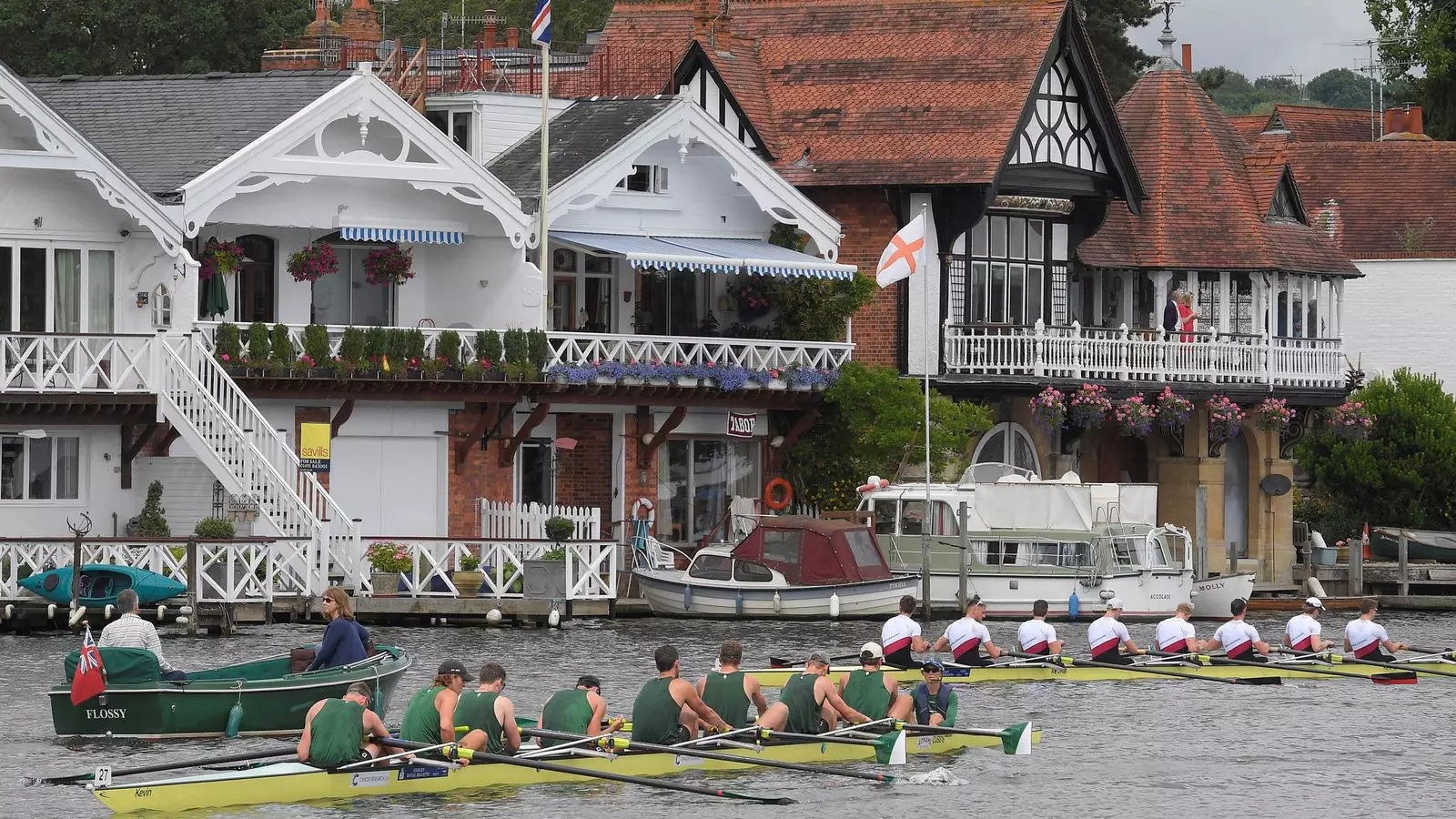The Henley and Marlow River Action Group has conducted water testing in the River Thames ahead of the Henley Royal Regatta, revealing an alarming presence of E.coli bacteria. The group found an average of 1,213 E.coli colony forming units (CFUs) per 100ml of water, which exceeds the Environment Agency’s inland bathing water quality standards of 900 CFUs per 100ml, making the water unsafe for swimming. The highest recorded CFU was a staggering 25,000, more than 27 times the acceptable limit.
Effluent from the Henley sewage treatment works in Fawley Meadows has been identified as a significant source of E.coli contamination in the river. Nearly half of the measurements taken in the area exceeded the safe limit for swimming, raising concerns about the impact on racegoers who gather in the vicinity to watch the regatta. Despite Thames Water’s assertion that E.coli levels are within acceptable limits during dry conditions, spikes in readings following rainfall indicate ongoing pollution issues.
Thames Water has disputed the findings of the River Action Group, accusing them of taking an alarmist approach and attempting to apportion blame. The water company claims that multiple sources, including farming, industry, road runoff, and wildlife, may have contributed to the elevated E.coli levels in the river. However, the consistent presence of the bacteria raises questions about the effectiveness of current pollution control measures.
Exposure to E.coli can lead to a range of infections, including urinary tract infections, cystitis, stomach cramps, bloody diarrhea, and vomiting. In severe cases, certain strains of E.coli can cause life-threatening sepsis, necessitating urgent medical intervention. Regatta organizers have advised rowers to take precautions, such as covering cuts and grazes, avoiding swallowing river water, wearing appropriate footwear, and thoroughly cleaning equipment to minimize health risks.
Political Promises and Environmental Concerns
Water pollution has become a key issue in the political landscape, with promises from various parties to address sewage dumping and improve water quality. The Liberal Democrats have pledged to protect chalk streams and bathing areas from pollution, while Labour has vowed to hold water company bosses accountable for cleaning up environmental filth. The Conservatives have introduced legal requirements for water companies to reduce discharges and increase investment in pollution control measures.
Overall, the high levels of E.coli in the River Thames pose a significant health risk to individuals participating in the Henley Royal Regatta and raise broader concerns about water quality and pollution control in the area. Collaborative efforts among stakeholders, including regulators, water companies, and environmental groups, are essential to address the root causes of contamination and safeguard the health of the community.

Leave a Reply